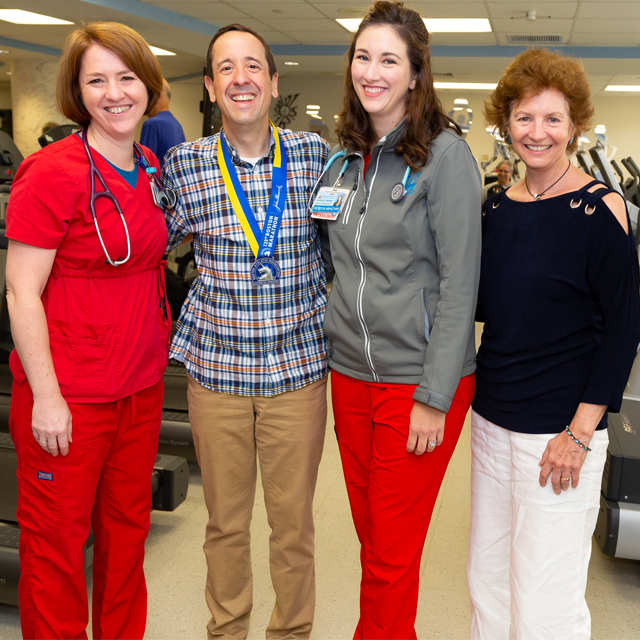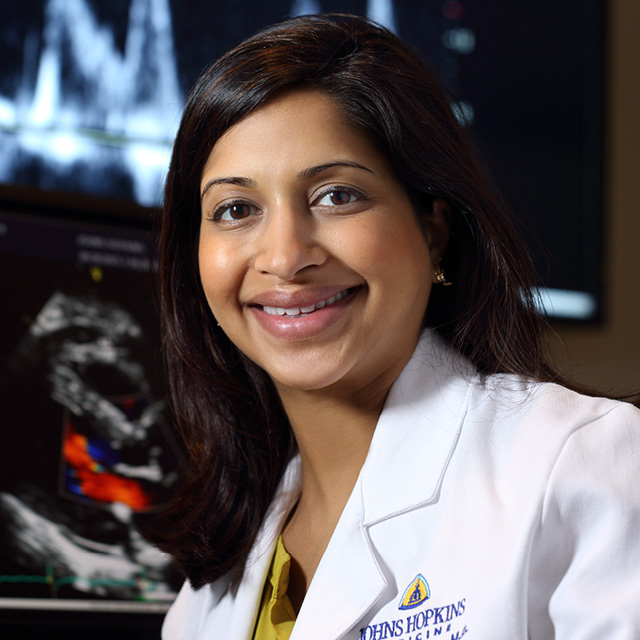Cardiologist Erich Wedam, M.D., treats patients with irregular heartbeats and other cardiac conditions at Johns Hopkins Community Physicians Heart Care Bethesda, and at Sibley Memorial Hospital and Suburban Hospital.
During the coronavirus pandemic, he says, patients can be confident that “immense amounts of precautions are being taken” to keep everyone in hospitals and clinics safe from COVID-19.
“People are not likely to get sick here,” he says. “We don’t want our patients to get sick, and we don’t want to get sick, either.”
Q: What is Johns Hopkins doing to protect patients from the novel coronavirus?
A: We take this virus extremely seriously.
Medical offices and hospitals across the Johns Hopkins Health System have increased their already stringent cleaning and sanitizing procedures. All physicians and staff members are screened daily for symptoms and are not allowed to come to work if they show any signs of illness. They wear face masks, face shields and gloves.
Patients are required to wear masks and are screened for symptoms and fever before outpatient appointments.
At our hospitals, all patients are tested for COVID-19 before admission and before surgeries or other procedures.
Q: When should people seek cardiac care?
A: If you suspect you are having a heart attack or stroke, you need immediate care and have to go to a hospital. Don’t ignore symptoms such as sudden shortness of breath, a sensation of pressure on the chest, dizziness, nausea or breaking out in a cold sweat.
Patients who have had cardiac procedures such as ablations, stent placements and pacemaker implants in the past two years should continue with follow-up visits. Assessments such as electrocardiograms and lab work require in-person visits. We also like to meet first-time patients in person.
Q: What is the role of telemedicine during the pandemic?
A: We’re currently using telemedicine for about 40% of patient visits. It’s particularly good for surgeons who are counseling a patient and answering questions about upcoming procedures.
If you’re not sure whether you should make or keep a cardiac care appointment, call your doctor. When my patients ask, I tell some of them that I don’t need to see them for another year.
But at least half the time I tell them they need to come in for an exam. If you’re taking medications, you may need lab work to assess your liver and kidney function. We can’t just refill medications for someone we’re not really seeing.


